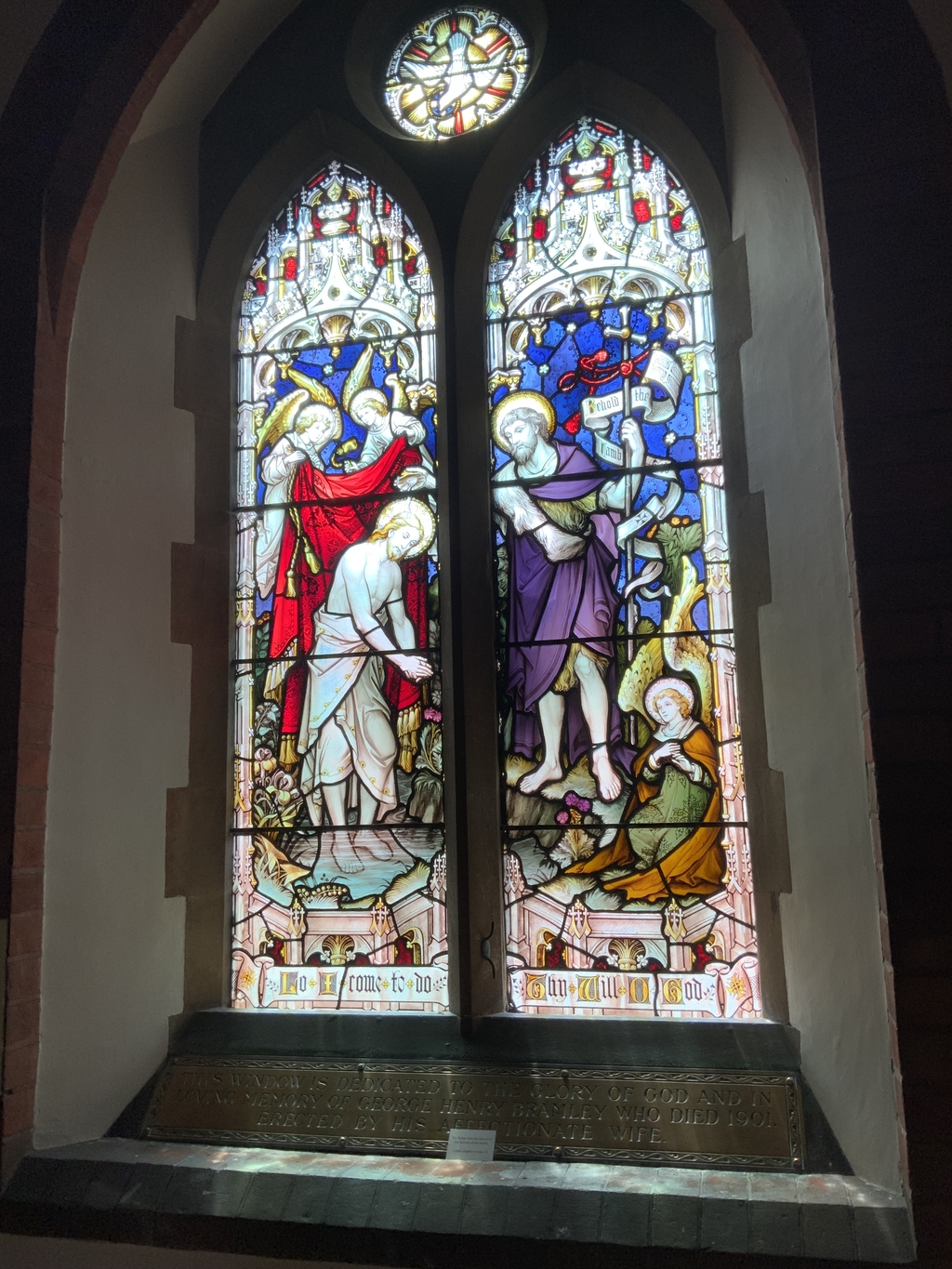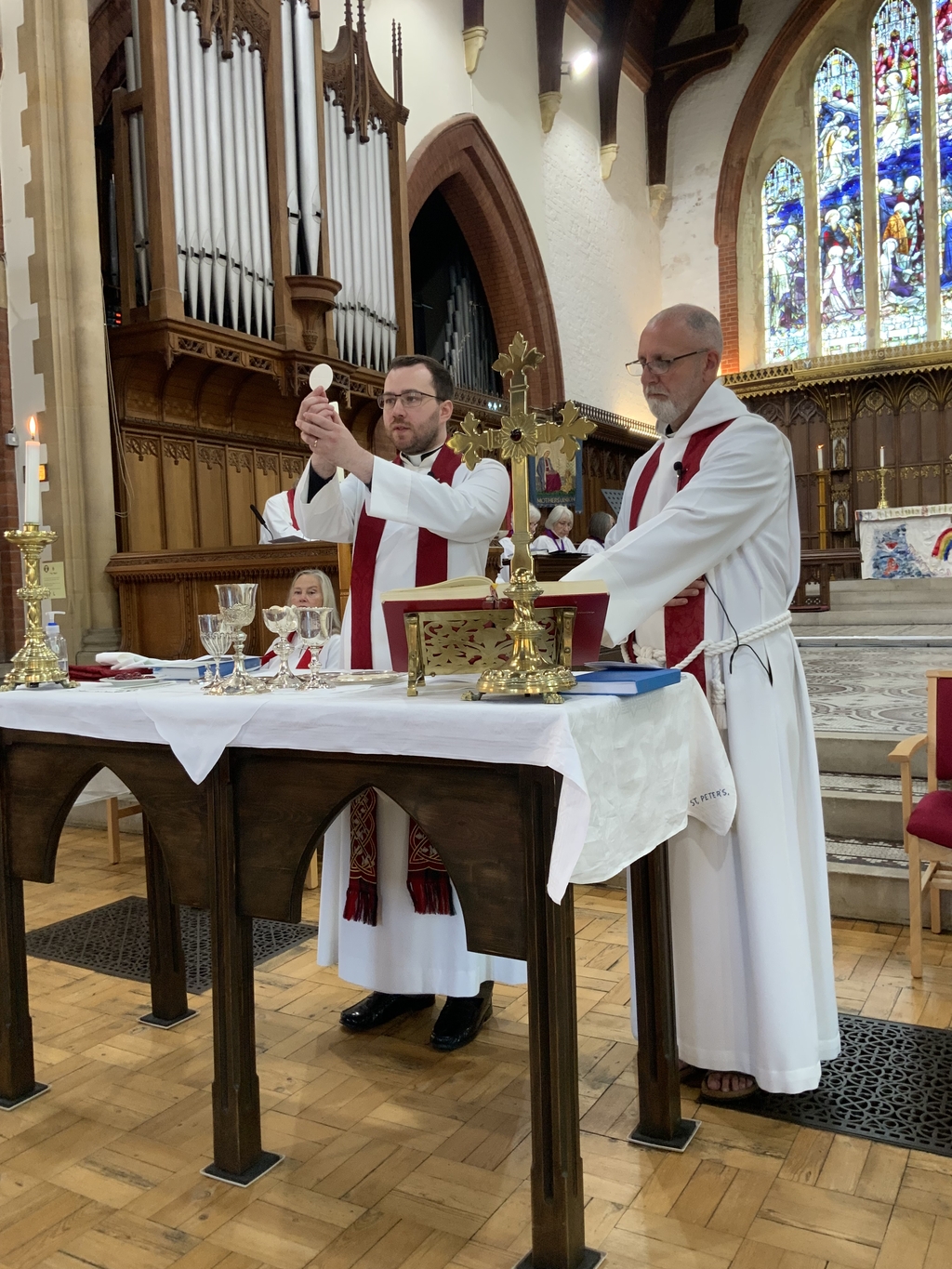For the first time in over 300 years there is neither a Pope nor an Archbishop of Canterbury in office. Selected people within the Catholic and Anglican Churches are, through prayer, discerning God’s will as to who from the priesthood is to be invited to take up each role. Their calling as priests is rooted in today’s reading.
The risen Jesus appeared to the disciples while they were fishing, and cooked them a breakfast of fish and bread over a charcoal fire. The only other mention of a charcoal fire in the New Testament was when Peter was warming himself at the time of the arrest. Then, he was asked three times whether he was with Jesus, and he denied it three times. Now, after feeding the disciples, Jesus asks Peter three times whether he loves him, and Peter affirms his love three times. Each time Jesus tells Peter to look after the flock: ‘Feed my lambs; Tend my sheep; Feed my sheep’. ‘Follow me’, he says.
What questions does this event raise for us? Does it mean that everyone who loves Jesus should aim to look after the flock? What does the flock consist of? What does tending the sheep entail? What is good food for the lambs and sheep? How should we follow him?
We might think of some of the attributes of tending sheep: to strengthen the weak, heal the sick, bind up the injured, bring back the strays, and look for the lost. We know that Jesus called himself the Good Shepherd (John 10:11). Here in our story he’s not only sharing food with Peter, he’s sharing the oversight of the flock with this disciple who loves him. Does this only mean Peter, or everyone who loves him?
Peter did follow Jesus, to the point of martyrdom. He was the first leader with oversight to be called as a shepherd by Jesus, but there were others in his time, and more have been called ever since by the Holy Spirit.
The calling into this leadership position as shepherds is affirmed through other people within the Church. Leaders lay hands on successive leaders, so that those called today are linked through human hands to Peter, while linked to God through Jesus Christ and the Holy Spirit.
There are major differences we can see between these shepherd leaders in the Church and those who lead in other walks of life. The first is that they don’t apply for a job, they’re given a calling by God which is discerned by others: often one they don’t want, weren’t looking for, and for which there’s little or no financial incentive.
The second is that the leaders set the example they see in Christ, they serve rather than lord it over those they oversee. The third is that it’s not the organisation but the people who are being served, the flock. The fourth is that the flock doesn’t only consist of the people within the organisation: it includes those outside of it, those who have gone astray, those who are lost or scattered and vulnerable. It’s a tall order, being called as a shepherd!
It’s apparent as we think about this that the management of the organisation itself, the administration, and the provision of facilities must be attended to as well as the tending and feeding of all those people. Clearly there’s a lot of work to be done, which doesn’t all fall on the few shepherds.
Others are called to help in specific areas. My calling as a Lay Minister began with a persistent resonation of the verse in our reading: ‘Feed my Sheep’. It’s this calling which was discerned by the Church and for which I’m trained, to help the shepherds to feed the sheep. This involves preaching and teaching, helping people to grow in faith using the food of the scriptures, of liturgy, of theological thinking past and present, and of reflection on experience. There’s another particular calling for people who help feed the lambs, the children. Others are called as pastoral assistants, worship leaders, administrators, evangelists, church wardens, treasurers, cleaners, aid workers, etc.
Every one of us has a calling. Jesus is the example we follow, our primary focus, through whom we receive the gifts, guidance, and calling of the Holy Spirit, and through whom we love and serve the Lord.
All who love the Lord like Peter have a part to play in looking after the whole flock. Some, like him, are called as shepherds, leaders who serve, while others are called to help them, both specifically in particular areas and generally so that we care for each other and build each other up in faith.
Let’s keep the people in our prayers who have been given the task of selecting the new Pope and Archbishop, and continue to pray for those who take up each role.
And let us each serve faithfully according to our own calling, as we love and serve the Lord day by day.
Amen.
Julie Rubidge, Lay Minister














